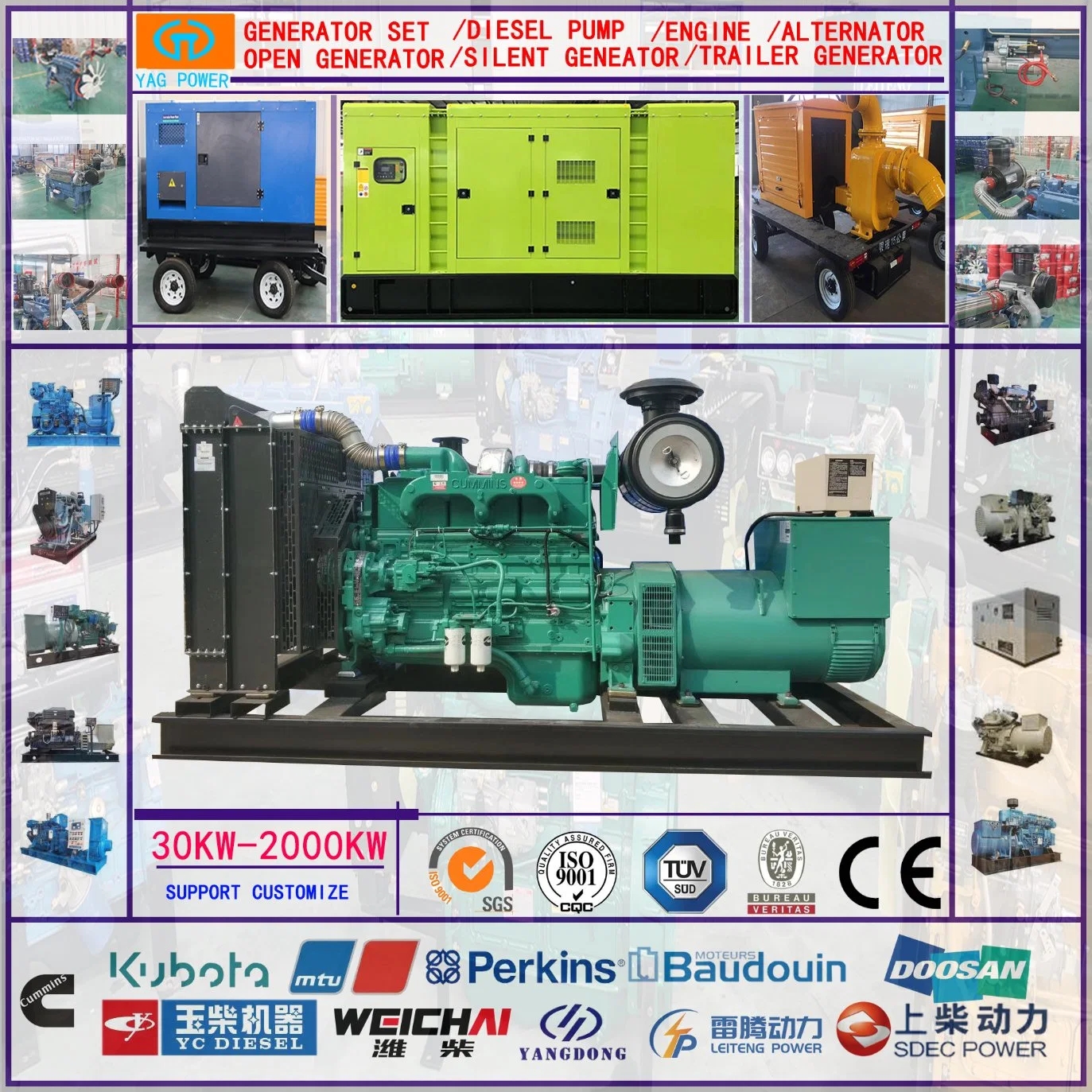Ensuring Safety Standards in Diesel Generators A Comprehensive Guide
Introduction
Diesel generators are essential equipment used in various industries, commercial settings, and residential properties to provide backup power during emergencies or in areas where reliable electricity supply is not available. While diesel generators offer a reliable and cost-effective solution for powering electrical equipment, they also come with certain safety risks that need to be addressed. In this article, we will discuss the safety standards that should be followed when using diesel generators to ensure the protection of both equipment and personnel.
Safety Standards for Diesel Generators
1. Installation and Location

Proper installation and location of a diesel generator are crucial for ensuring safety. The generator should be installed by qualified professionals in accordance with the manufacturer's guidelines and local building codes. It should be placed in a well-ventilated area to prevent the build-up of exhaust fumes, which can be harmful to health. Adequate space should be provided around the generator for maintenance and cooling purposes.
2. Fuel Handling
Diesel fuel is highly flammable and should be handled with care to prevent accidents. When refueling the generator, it is essential to follow proper procedures to avoid spillage and minimize the risk of fire. Fuel storage tanks should be located at a safe distance from the generator and other ignition sources. Regular inspections of fuel lines and connections should be conducted to detect and repair any leaks promptly.
3. Exhaust System
The exhaust system of a diesel generator plays a critical role in ensuring the safe operation of the equipment. Proper ventilation is essential to remove exhaust gases from the generator enclosure and prevent the accumulation of toxic fumes. Exhaust pipes should be installed in such a way that they direct emissions away from occupied areas and sensitive equipment. Regular maintenance of the exhaust system is necessary to prevent blockages and leaks.
4. Electrical Safety
Diesel generators produce high voltages that can pose a serious risk of electric shock if proper precautions are not taken. All electrical connections should be made by qualified personnel following the relevant safety standards. Grounding of the generator and electrical components is essential to prevent electric shocks and fires. Regular inspections of electrical components should be conducted to identify and address any potential hazards.
5. Cooling System
The cooling system of a diesel generator is responsible for regulating the temperature of the engine and preventing overheating. Proper maintenance of the cooling system is crucial to ensure the safe operation of the generator. Coolant levels should be checked regularly, and any leaks or malfunctions should be addressed promptly. Overheating can lead to engine damage and pose a fire hazard, making the cooling system a critical component of generator safety.
6. Fire Protection
Fire protection measures should be in place to prevent and mitigate the risk of fires in and around diesel generators. This includes the installation of fire detection and suppression systems, as well as the provision of fire extinguishers in accessible locations. Regular fire drills should be conducted to ensure that personnel are familiar with emergency procedures in case of a fire. Proper storage of flammable materials away from the generator is also essential to reduce the risk of fire.
7. Noise Control
Diesel generators can produce high levels of noise during operation, which can be a nuisance to nearby residents or workers and pose a risk of hearing damage. Noise control measures should be implemented to reduce the sound levels emitted by the generator. This may include the installation of soundproof enclosures, the use of mufflers on exhaust pipes, and the proper placement of the generator to minimize noise transmission. How to maintain a 400kW generator of the generator can also help reduce noise levels by addressing any mechanical issues that may contribute to excessive noise.
8. Maintenance and Inspections
Regular maintenance and inspections are essential to ensure the safe and reliable operation of diesel generators. Scheduled maintenance tasks should be performed according to the manufacturer's recommendations to prevent breakdowns and prolong the lifespan of the equipment. Inspections should cover all critical components of the generator, including the engine, fuel system, electrical system, and cooling system. Any defects or abnormalities should be addressed promptly to prevent accidents and ensure the continued safety of the generator.
Conclusion
Safety standards play a vital role in ensuring the safe operation of diesel generators in various settings. By following the guidelines outlined in this article, users can minimize the risks associated with diesel generators and create a safe working environment for personnel. Proper installation, fuel handling, exhaust system maintenance, electrical safety measures, cooling system maintenance, fire protection, noise control, and regular maintenance and inspections are essential aspects of diesel generator safety. By adhering to these standards, users can enjoy the benefits of reliable backup power while prioritizing the safety of equipment and personnel.